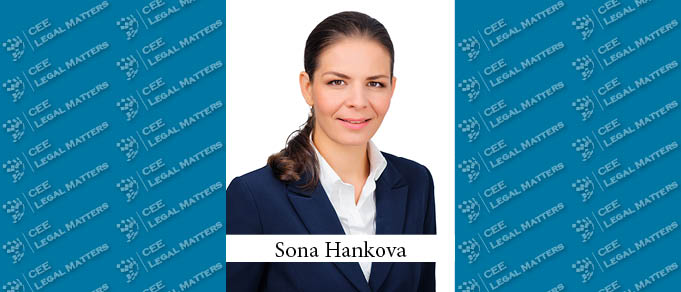A tax reform, updated labor costs, and ESG compliance challenges are some of the main challenges facing businesses in Slovakia at the moment, according to CMS Partner Sona Hankova.
“The new consolidation package for public finances, which was adopted in October 2024, introduces a range of measures designed to improve the state of public finances,” Hankova begins. She reports that the tax legislation will see significant changes. “Perhaps the most notable is the new “financial transaction tax,” set to begin in April 2025,” she explains. "It applies broadly to businesses, including individual entrepreneurs, and covers financial transactions resulting in debiting the entrepreneur’s bank account such as payments of invoices, loan installments, and use of payment cards. Law provides for further rules and exceptions."
Hankova reports that “companies are busy recalculating costs and exploring ways to optimize payments. For some, this could mean significant additional expenses annually. There’s also concern about the potential resurgence of cash payments to optimize these taxes.” Beyond that, Hankova says that there’s widespread anxiety in the business community about how this will affect their operations, particularly given that “it’s essentially an additional tax on the use of funds which have been already taxed by income tax.”
In addition to these changes, there was also a major shift in VAT rates. “The basic VAT rate is rising from 20% to 23%. Two reduced VAT rates of 19%, instead of 10%, and 5% will apply; change in VAT rate has already led to a short-term rush in construction and real estate transactions,“ Hankova says. “On the corporate income tax side, there’s a new tiered system: legal entities earning over EUR 5 million will face a higher tax rate of 24%, while legal entities earning up to EUR 100,000 will have a reduced rate of 10% instead of the current 15%." However, “individual entrepreneurs earning up to EUR 100,000 will continue to pay a 15% tax rate. The taxation of dividends on profits for individuals is being lowered from 10% to 7%. This incentivizes many individual entrepreneurs to restructure their operations into LLCs,” Hankova explains.
Shifting gears to focus on labor costs, Hankova stresses that this is “another challenging area. As of January 1, the minimum wage is increasing from EUR 750 to EUR 816, which further pressures businesses already dealing with higher taxes. Many companies are restructuring labor costs to adapt.”
At the same time, businesses are grappling with ESG compliance. “Large businesses are required to issue their first ESG reports for the year 2024, and other businesses will follow gradually each year by 2028. Even suppliers not directly required to report are feeling the impact, as their clients demand compliance to maintain relationships,” she says. “This is a transformative shift, and businesses are investing substantial time and resources to meet these requirements.”
Furthermore, Hankova says that there have also been movements having to do with energy and healthcare. “We’re awaiting government decisions on targeted subsidies for households struggling with rising energy costs. Likely, due to lack of time, the subsidies will be general as was the case last year. Additionally, Slovakia is exploring financing options for a new nuclear reactor, inspired by similar projects in the Czech Republic.” In healthcare, she notes an “ongoing debate about privatizing traditionally non-profit public hospitals, which could attract private investors but is controversial.” Moreover, the sector “faces mass termination notices from doctors highlighting long-standing issues with wages, working conditions, and resource allocation.”
Finally, Hankova says there are signs of optimism and wishes for stability in the region. Despite challenges, Slovakia has become an attractive relocation destination for Ukrainian entrepreneurs. “Many businesses remain optimistic and are rethinking strategies to adapt."


